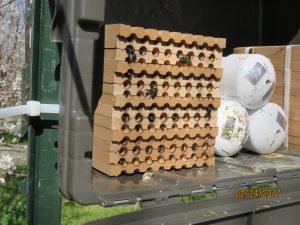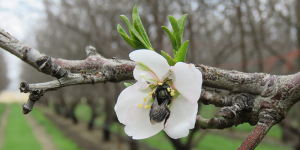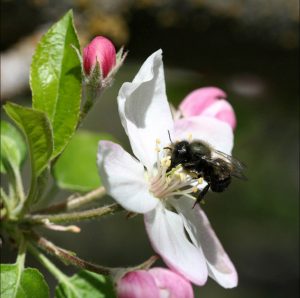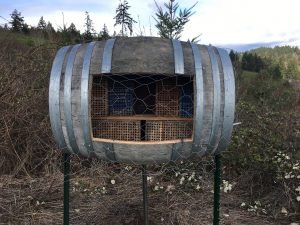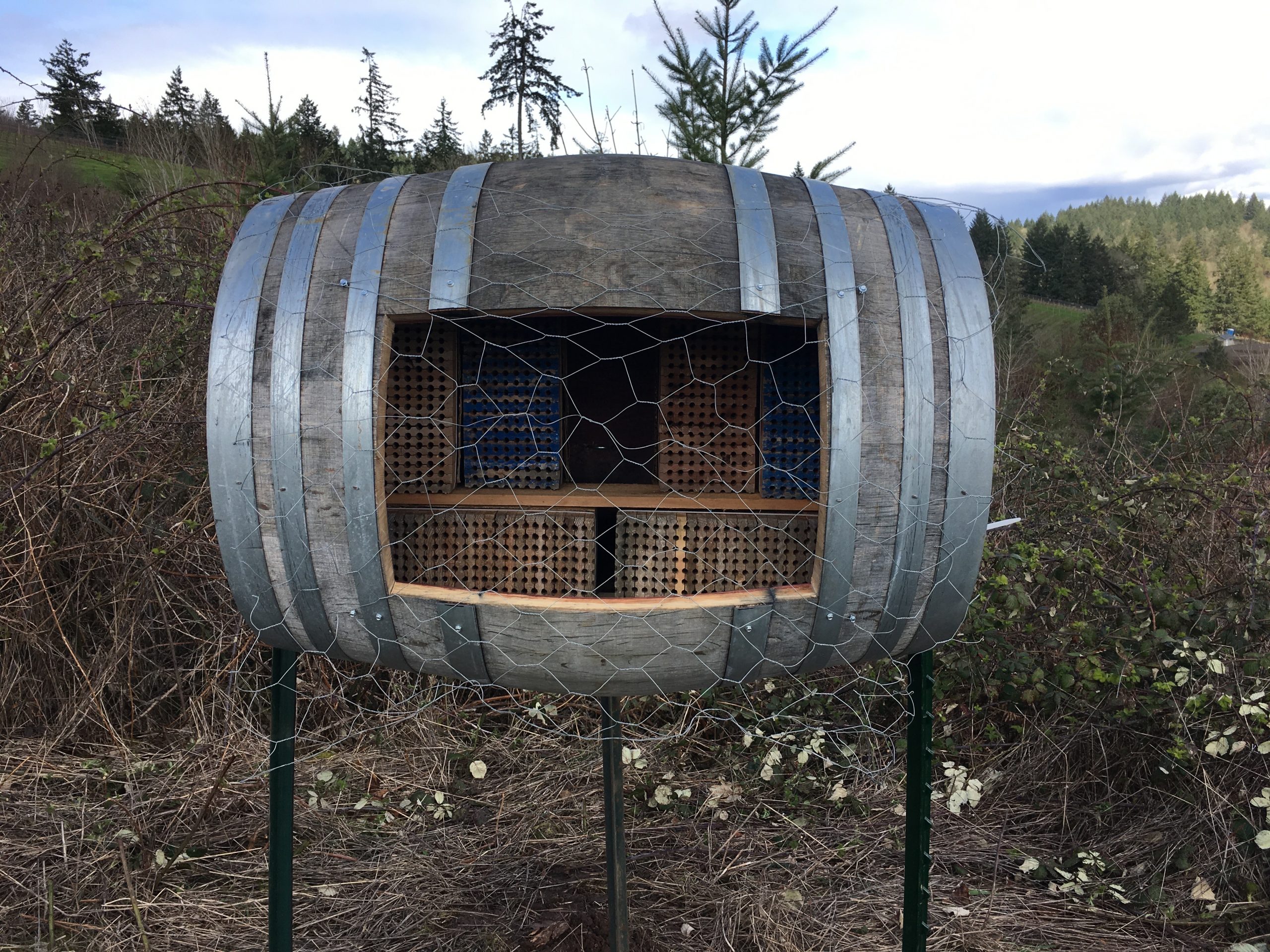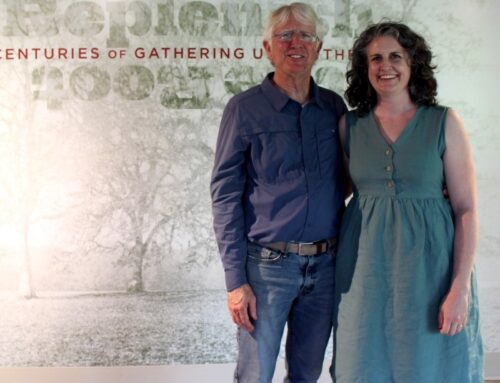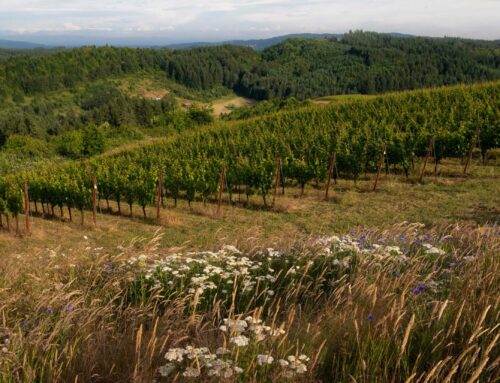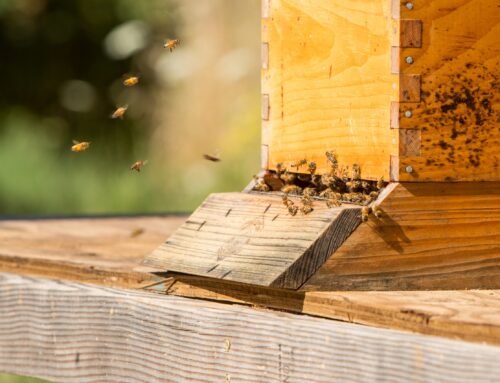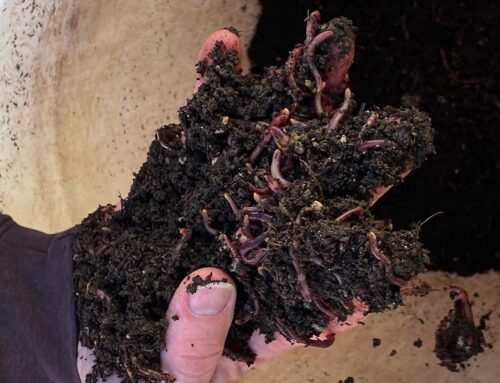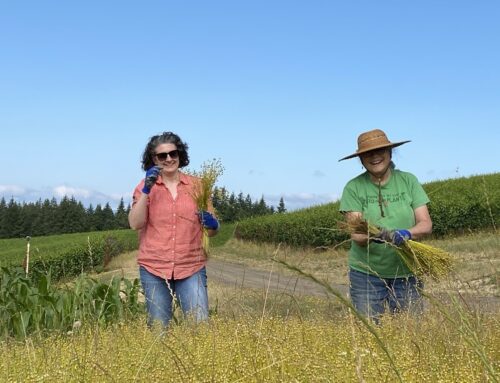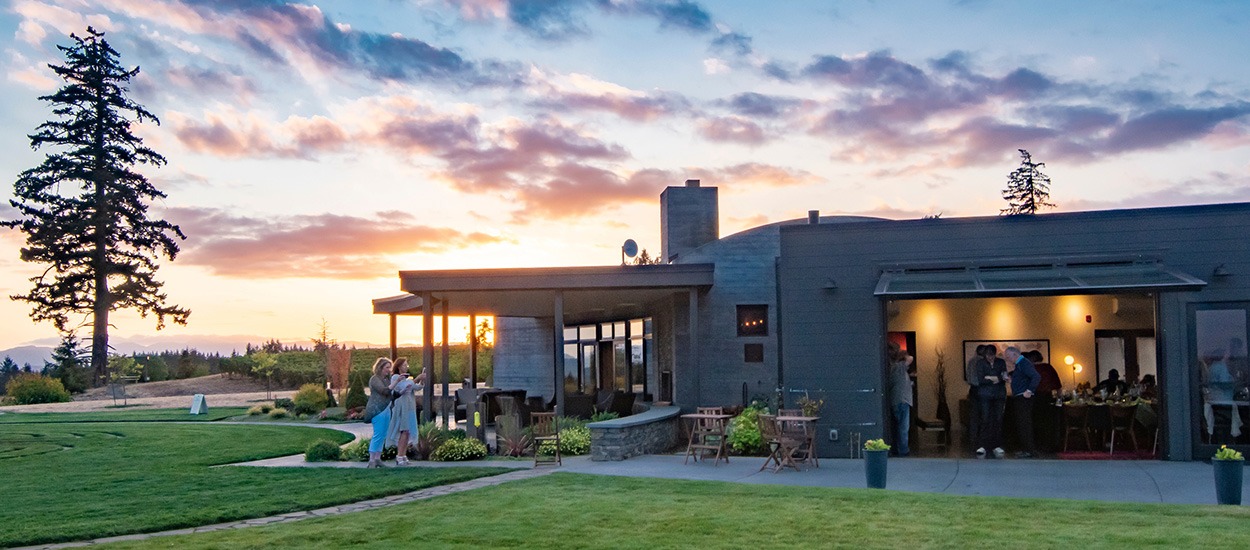Each season, with the arrival of spring, Fairsing Vineyard is pleased to assist Craig Watts of Watts Bees with breeding Orchard Mason Bees in ten large nests positioned strategically throughout our sustainable forest.
Spring is an important season for the Orchard Mason Bee as a new generation emerges from nests usually in perfect timing with blooming fruit trees and flowering plants.
Upon leaving the nest, Orchard Mason Bees promptly mate, search for empty holes/tubes that are of the right size and shape, and go to work constructing nests they will stock with food and their eggs.
When building nests females use clay/mud to make partitions between each of the eggs they lay (as many as five per tube) and to seal the entrance. This unique mud-building behavior leads to their common designation as “masons”.
Orchard Mason Bees are solitary with each bee tending to its own brood in a nest versus life in a hive like a honeybee with a queen and worker bees.
The Orchard Mason Bee does like community and happily builds nests next to each other – readily accepting hollow tubes provided by growers for this purpose in incubators or larger nests.
Inside the tubular nests the bee larvae grow, and by the end of summer, metamorphose into pupae and later into adults. The larvae remain safe and sound inside the nest until the next spring.
The Orchard Mason Bee (members of the genus Osmia lignaria) is non-aggressive and one of Mother Nature’s friendly pollinators.
Dark metallic blue with four wings, the Orchard Mason Bee is native to North America and valued as an extremely efficient pollinator by home gardeners and commercial fruit growers.
